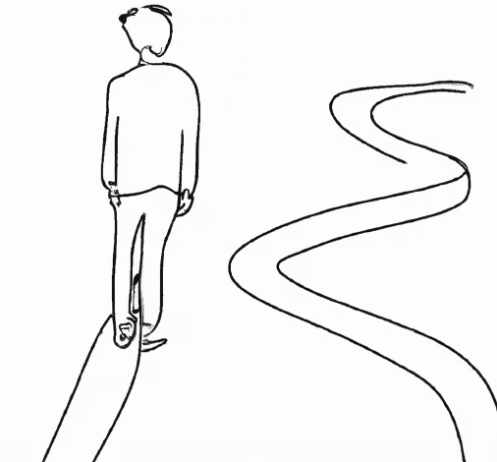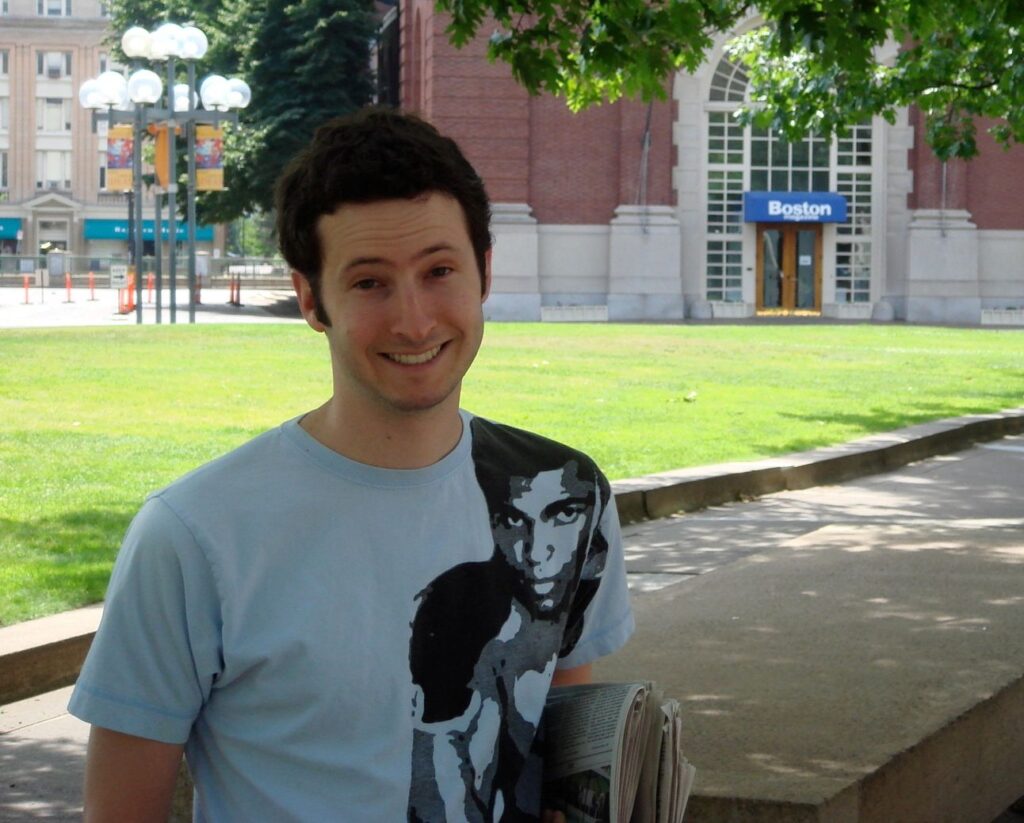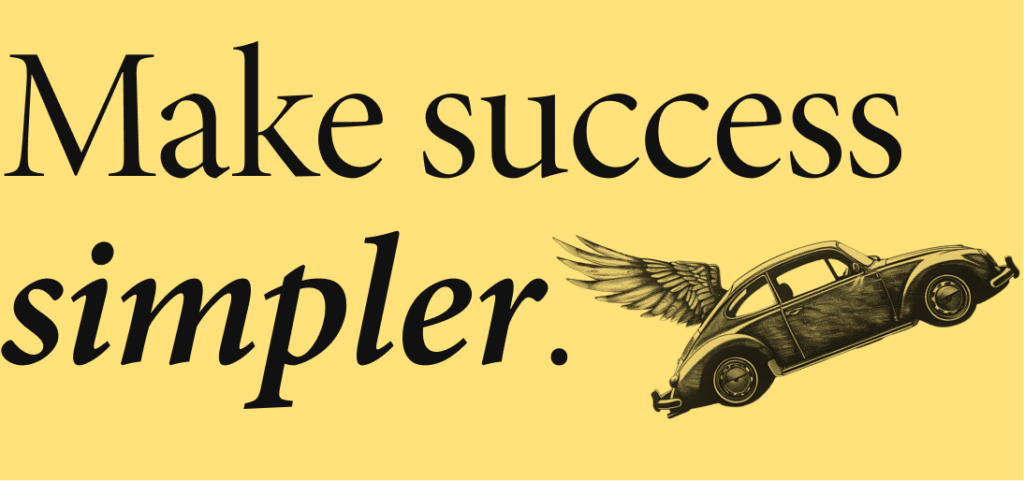Welcome to One Thing Better. Each week, the editor in chief of Entrepreneur magazine (that’s me) shares one way to be successful and satisfied at work — and build a career or company you love.
This is a preview of my first newsletter for Premium members.
Today’s reader question: “Am I stuck?”

Vanessa writes:
“Being part of a startup is the hardest thing I’ve ever done, but also the most exciting. Change feels like a constant — the highs are HIGH and the lows are low. I truly love what I do but sometimes find myself questioning the risk and wondering if I should’ve taken a more traditional career path. How do I square that?”
My answer:
Vanessa, you’re really asking a question about control. You love your work, but you don’t feel like you control enough of your life. And you’re wondering if you can ever have both — the satisfaction of a non-traditional path, and a life that’s steady enough to enjoy what you’ve earned.
But I also think you’re asking the wrong question. So I’ll help you ask the right one, then offer an answer. (Spoiler: Yes, you can have what you want… but it takes a different kind of work.)
To start, let’s back up and talk about hard work — and the trade-off it demands.
Why we do what we do.
I began my career in journalism, where a colleague once told me this: “If you can do anything else, go do that.”
They weren’t trying to be discouraging. They were showing me the keys to an exclusive club. The message was: “There are easier, less stressful paths. You didn’t choose them, because they wouldn’t have satisfied you. You are choosing a hard path because you’re compelled to — because it is the price you’ll pay to do what you love.”
I liked that. It felt like a badge of honor. And as my career evolved, I realized that this thinking isn’t exclusive to journalism. Many people, in many fields, say this of themselves — and in your startup world, I’m sure you relate.
But let’s be honest: You didn’t sign up for the Suffering Olympics. You don’t want hardness to be the measure of your professional worth. That gets old — especially as we get older.
So here’s the thing to know: Hardness and satisfaction don’t have to be a package deal. But to decouple them, you’ll need to start making intentional choices. You’ll need to choose the level of hardness you want, and define what satisfaction looks like.
Here’s a question worth asking yourself:
What would it look like to keep the exciting and rewarding parts of your work — but with less stress?
I like this question because it forces us to isolate what we want. Why do you love your work? Is it literally just the act of building a startup? Or is it something more elemental — something you just happen to find in startups? Is it the act of creating? Of shaping something? Of making up the rules?
Whatever it is, that is what you’re ultimately chasing. And it’s what you should optimize for.
Now here’s a good follow-up question: What have you earned that allows you to get what you want — on your terms?
You might not think of it this way, but your work has earned you many things. You earned reputation. Experience. Abilities. To get what you really want, you just need to be more creative about how you spend these earnings.
Here’s an example — from my own life.
When I was 27, I was a junior editor at Boston magazine. Here I am outside the office — just look at that little pup!

We had a very startup-like culture — a young, ambitious team working crazy hours. When I left the office at 2 am, I thought: This is fun!
But just like you, that grind eventually became less fun.
So, I wondered: What would it look like to keep the exciting and rewarding parts of this work — but live a steadier life? For a while, my answer was simple: I should work at magazines with normal work hours. I took jobs based in part on the work, but also in part based on the culture.
After a few years, I started to think bigger. I realized that magazines weren’t the thing I really loved — they were just one expression of something I’d come to love more. What I really wanted was the ability to say and write things that were meaningful to others.
So I asked that second question: “What have I earned, that allows me to do all of that?”
Well, let’s see — what has my hard work gotten me? I earned a reputation. I earned insights into career-building. I earned a deep understanding of a work-minded audience. I also earned certain skillsets to connect with them. Based on this, I started to creatively spend what I’d earned. I tried new projects. I built this newsletter! And even though I’m still happily at Entrepreneur magazine, I am very mindful of how these projects could define the next, less stressful, even more rewarding phase of my career.
My situation is different from yours, and yours is different from everyone else’s. But we all share something: We have earned an ever-growing set of abilities, and our current roles, whatever they are, utilize only some of those abilities. We have untapped resources! We know things — we are good at things! — that we aren’t putting to full use.
So what if we did?
Let’s ask your question a different way.
Vanessa, you’re wondering if you should have taken a more traditional career path. But that’s not a helpful way of thinking about it. It creates a kind of original sin — that a decision you made at the beginning of your career will forever determine your fate.
Our lives don’t work like that. And your question ignores everything you’ve learned from the path you did take.
You have learned — you have earned — a lot.
Your choice is NOT: “My current path vs. a path I did not choose.”
Your choice actually IS: “My current path vs. the next version of this path.”
We do ourselves no favors by second-guessing our choices. We made the best decisions we could, based on whatever was available at the time. We acted on what we knew, or what we wanted, or what we thought, or what we were capable of.
And you know what’s crazy? If you zoom out far enough, every path you took would have led to the same place.
When you chose your startup path: You learned a lot, found some parts satisfying, found some parts unsatisfying, and then wondered aloud whether you’d made a mistake.
If you had chosen a more traditional path: You’d have learned a lot, found some parts satisfying, found some parts unsatisfying, and then wondered aloud whether you’d made a mistake.
All roads lead to now.
You are where you are. And where you are is good. It’s full of knowledge you didn’t have. It’s full of goals you achieved, and many still left to chase. You scratched some itches, but still feel itchy. These are good things. It means there’s more life ahead. So go live more life.
That’s how to do one thing better.
